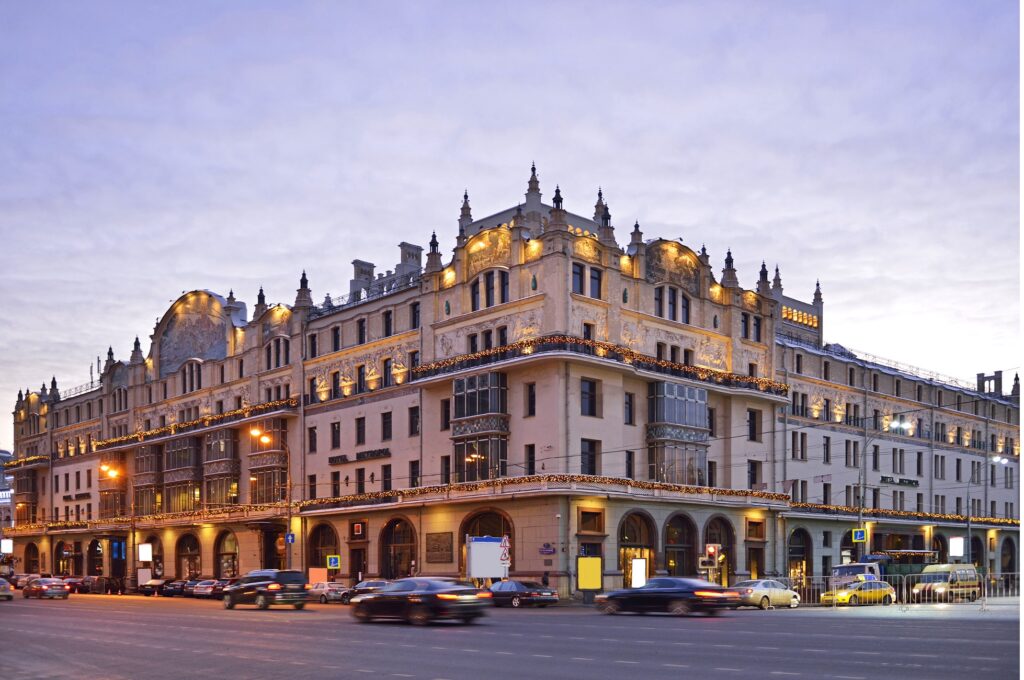By Caitlin Rothermel
I invite you back to mid-March 2020, when the COVID-19 lockdown started. It was seasonable on Vashon. But because it was not yet really spring, it was still easy to feel cold, especially at night.
Most notable at that time was a sense of worry and waitfulness. An uncertainty regarding what would come next, combined with a clear sense that things had changed fairly completely, even if it was impossible to know exactly how.
Going to bed, I started a nighttime daydream I still sometimes rely on and that is inextricably tied to, “A Gentleman from Moscow,” a novel about revolutionary Russia, published in 2016 by the American author, Amor Towles.
When I went to bed, I pretended I was in a bunk on the Trans-Siberian Railway, traveling through deep winter. The Trans-Siberian is the world’s longest train line, a two-week journey that covers 5,772 miles between Moscow and Vladivostok.
For a while, this bedtime state of mind worked like a charm. Pretending to be in a small cabin, experiencing security and safeness despite being only a functional engine away from freezing. Somehow, it really worked for me; it soothed my insecurities. But eventually, psychologically, I was ready to get off that train. Lockdown was still ongoing, but I wanted to broaden my mental horizons.
Another favorite hideaway fantasy has always a top-tier, turn of the century hotel. Nothing modern – too sterile. Rather, a classically built hotel – with unique rooms and distinct furnishings; long, mesmerizingly carpeted hallways; and a complex system of back rooms in the building’s bones. In other words, an architecture that a person in restriction could merge with over time.
“A Gentleman in Moscow” is set in the Hotel Metropol, an Art Nouveau building in central Moscow. Located near the Kremlin and Bolshoi Ballet, the Metropol represented a new high point in Russian luxury when it opened in 1905, with 200 rooms, hot showers, in-room telephones, and international dining.
Our main character is Count Rostov, a hotel-dweller in lockdown for 32 years. Designated a “former person” upon returning to the Soviet Union in 1922, Rostov is sentenced to never leave the Metropol. “Former people” were Russian citizens that included the nobility, clergy, industrialists, and members of the former Tsar’s bureaucracy and military. During the Russian revolution and subsequent civil war, these groups lost their social status and either left the country or were exiled, imprisoned, or killed.
Why was special favor shown to Rostov? It would have been politically inconvenient to kill him. This was because of a well-known poem he had written prior to the revolution – one that spoke out against the aristocracy.
Boosted from his suite, Rostov sets up residence in a 100 square-foot attic room. He settles into his new life with grace, openness, and curiosity. In this very influential Moscow location, the tumult and information from the outer world comes to Rostov, and what follows are a series of beautifully described mini-eras.
Although Count Rostov is fictional, stories told about the Metropol are historically accurate. For example, from the 1920s to 1930s, the Metropol’s bar, the Shalyapin, was the preferred late-night spot for foreign correspondents and international businessmen. To entertain investors and statesmen, it became essential for the USSR to have glittering places like the Hotel Metropol, to promote the benefits of Communism to the rest of the world. So, even as Prohibition was the law in the United States and famine spread to the Ukraine, every evening, nighttime entertainment that included live jazz was available at the Hotel Metropol.
Over time, Rostov also engages in deeply satisfying relationships that include a love affair with a former film actress, becoming an adoptive father, and a headwaiter, and acting as a cultural interpreter for his Bolshevik handler. There are also great descriptions about eating food, and making food. Over time, the Metropol continues to function, with largely the same staff – seemingly locked in time, even as it gets a bit shabby.
Some books have great characters, and some books are set in a place that is a great character. This book has both, and it is less than 500 pages long (which is really manageable for a novel about Russia).
Last month, my husband was genuinely surprised, and said, “You’re reading that again?” (It’s been three times).
You bet I am, honey. Your turn next.

